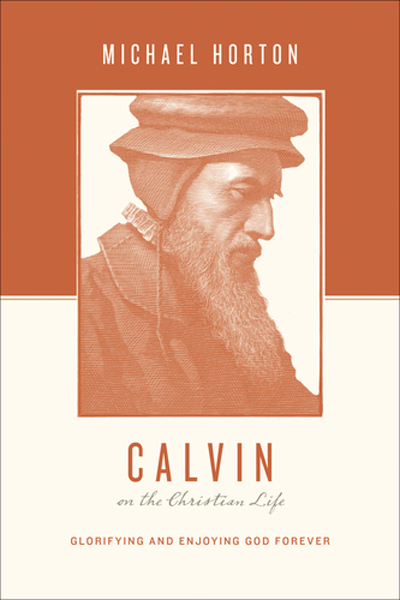
Michael Horton
Reviewed by: Christopher Chelpka
Calvin on the Christian Life: Glorying and Enjoying God Forever , by Michael Horton. Crossway, 2014. Paperback, 272 pages, $19.99. Reviewed by OP pastor Christopher Chelpka.
On August 23, 1535, John Calvin wrote to King Francis I of France, explaining his purpose for writing the Institutes. He wanted to help people live the Christian life by teaching them the Christian faith. “My only purpose,” he wrote, “was to teach some rudiments by which those who are touched with some good affection for God might be instructed in true piety.”
This objective was grounded on the belief that doctrine and life go together. As Calvin explained in the Institutes, salvation starts with the gospel, but it can’t end there. Doctrine “must enter into our heart and pass into our daily conduct.” The gospel “is not a doctrine of the tongue, but of life.” Using the Institutes as a guide, Michael Horton helps us to see this vision of piety in Calvin on the Christian Life: Glorying and Enjoying God Forever.
Horton begins with some introductions and a brief biography of Calvin. Then, in chapter 3, he develops Calvin’s theological foundation for Christian living: knowledge of God and of ourselves in relation to him. “Nearly all the wisdom we possess,” wrote Calvin, “consists of [these] two parts.” Chapter 4 explains the way we receive this wisdom: as a story of redemption, not as a set of proof texts.
In chapters 5 and 6, Horton explores Calvin’s doctrine of Christ as our mediator and the gifts that we receive in our union with him. Chapters 7–11 describe the ways we receive these gifts and how sanctification occurs in the family of God. These chapters are filled with insight and practical applications for piety. The same is true for the final chapters.
In the final chapters, 12–14, Horton considers the Christian’s life in the public square. He puts Calvin’s ideas in their historical context and shows how Calvin’s view of Christ and culture “is more complex and even paradoxical” than some assume. Those who think they already know Horton’s opinions on these matters may be surprised by what they read.
This book succeeds in showing the organic connection between Christian doctrine and Christian living, as seen in Calvin’s thought and life. Occasionally the book seems to lose this focus when the implications for piety are more assumed than stated, but Horton never strays from his main objective.
I particularly enjoyed three things about this book. First, Horton summarizes Calvin’s ideas in an accurate and memorable way. This is impressive, especially considering how good Calvin was at communicating his own ideas! Second, Horton highlights some overarching motifs in Calvin’s theology, such as “distinction without separation” and compassion for the weak. Third, the book is inspiring. Horton shows us that Calvin is a worthy example to follow, not because he was perfect, but because he knew what it meant to believe and live in light of the cross. By that same light, we are encouraged to do the same, for the benefit of others and to the glory of God.
July 27, 2025
July 20, 2025
July 13, 2025
Proclaiming Christ in a Pluralistic Age
July 06, 2025
June 29, 2025
June 22, 2025
June 15, 2025
© 2025 The Orthodox Presbyterian Church